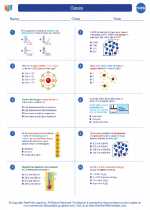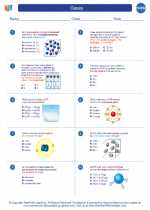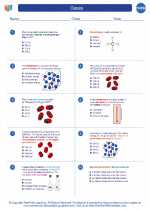Chemistry of Fuels
Fuels are essential for transportation, providing the energy needed to power vehicles. The combustion of fuels involves chemical reactions that release energy. The most common fuels used in transportation are derived from hydrocarbons, such as gasoline, diesel, and jet fuel. These fuels undergo combustion reactions with oxygen to produce carbon dioxide, water, and energy.
Study Points:
- Learn about the chemical structure of hydrocarbons and how it relates to their energy content.
- Understand the combustion reactions of various transportation fuels and the products formed.
- Explore the concept of energy content and how it influences fuel efficiency.
Environmental Impact
The combustion of transportation fuels has significant environmental implications. The release of carbon dioxide and other pollutants contributes to climate change and air pollution. Additionally, the extraction and processing of fossil fuels can lead to environmental degradation.
Study Points:
- Examine the environmental consequences of burning fossil fuels for transportation.
- Investigate alternative fuel sources, such as biofuels and electric vehicles, and their environmental benefits.
- Understand the concept of emissions control and its role in reducing the environmental impact of transportation.
Chemical Kinetics in Engines
When vehicles are in motion, their engines undergo a series of chemical reactions to convert fuel into mechanical energy. Understanding the chemical kinetics involved in these reactions is crucial for optimizing engine performance and fuel efficiency.



